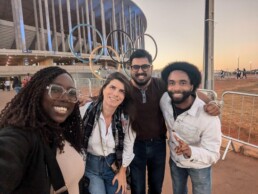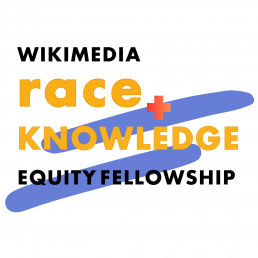Wikimedia Race and Knowledge Equity Fellowship
The inaugural Wikimedia Race and Knowledge Equity (WRKE) Fellowship Program is a one-year fellowship designed to explore the intersection of racial equity, free knowledge, and the intellectual property ecosystem, and to promote sound policy for achieving social justice through these overlapping disciplines.
Section 1201 Informational Primer here.
About the Fellowship
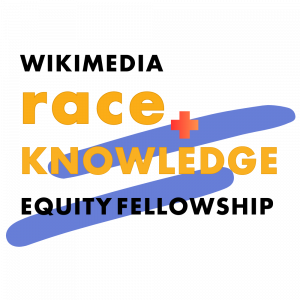
The role of the WRKE Fellow is to undertake scholarly and other research, produce scholarly publications and public intellectual writings intended to contribute to the body of free knowledge and racial equity scholarship, and to organize and present policy and community educational programming relevant to the Fellowship’s research and education agenda. The WRKE Fellow will work at the direction of supervising IIPSJ and HUSL personnel (in consultation with Wikimedia Foundation legal and policy staff), and receive support, guidance and mentorship from the WRKE Fellowship Advisory Board, made up of distinguished legal academics in the field of intellectual property social justice. Members of the Board are on hand to provide the Fellow with scholarly insight, policy expertise, and general guidance where needed to achieve Fellowship goals.
Among other things, the research and programming will examine the role of doctrinal elements within the IP law in contributing to traditions of systemic IP racial inequity and related injustice. The resulting research analyses will be put towards constructing free knowledge initiatives to improve the understanding and use of intellectual property in marginalized and underserved communities. The ultimate goal of the research is to improve racial equities through the IP ecosystem and related socio-economic aspects of the political economy, and will be available to the general public, IP law and policy makers, and IP practitioners.
The fellowship is funded through a grant from the Knowledge Equity Fund at the Wikimedia Foundation, and is jointly administered by the Institute for Intellectual Property and Social Justice (IIPSJ) and the Howard University School of Law (HUSL).
Latest Fellow News
Blog Post: WRKE Fellow Project Update
August 22, 2024
Kainen Bell, PhD Candidate at the University of Illinois - Urbana Champaign, and 2023/2024 WRKE…
Blog Post: IIPSJ Selects 2023-2024 Wikimedia Race and Knowledge Equity Fellows
December 11, 2023
Learn more about our newest WRKE Fellows.
Wikimedia Highlights WRKE Fellow Contributions in Inaugural Year Review
April 19, 2023
The Wikimedia Foundation launched the Equity Fund in late 2021, following the Black Lives Matter…
Meet the Fellows
2023-24 WRKE Fellows: Kyra Abrams, Akshat Agrawal, Kainen Bell, Albert Fox Cahn, Shubha Ghosh & Oroma Womeodu
Read about the 2023-24 fellows on our blog.
Fellow’s Library & Media Center
This primer is intended to educate and inform social activists and others about the laws governing technological protection measures (TPMs)--including exemptions that permit circumvention of TPMs--and how the rulemaking proceedings work.
This primer is intended to provide creators with information on termination rights, what
they are, and how they may be exercised.
This Primer is intended to provide an overview of the statute and the implications for Internet speech and activism, and particularly the impacts on historically marginalized communities.
Past Fellows
2022-23 WRKE Fellow: Shreyanka Mirchandani Changaroth
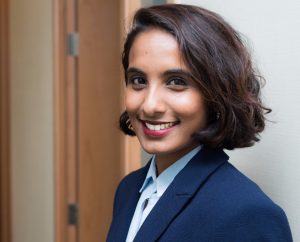 Shreyanka’s research interests lie at the intersection of law, technology, and social justice. In particular, she aims to tackle issues relating to digital inequity, privacy and surveillance, and how the existing legal and technology landscape plays a role in nurturing and perpetuating systemic inequities. During her time as WRKE fellow, she hopes to explore the various ways in which the IP regime may be dissected and overhauled to advance free knowledge objectives, and to bridge global and national digital divides. Shreyanka obtained her LL.B. from the University of Nottingham in the UK, her LL.M. in Law and Technology from the University of Ottawa in Ontario, and was called to the Singapore bar in 2016. She previously worked in private practice both as a litigation and corporate lawyer, before moving into the technology and innovations industry.
Shreyanka’s research interests lie at the intersection of law, technology, and social justice. In particular, she aims to tackle issues relating to digital inequity, privacy and surveillance, and how the existing legal and technology landscape plays a role in nurturing and perpetuating systemic inequities. During her time as WRKE fellow, she hopes to explore the various ways in which the IP regime may be dissected and overhauled to advance free knowledge objectives, and to bridge global and national digital divides. Shreyanka obtained her LL.B. from the University of Nottingham in the UK, her LL.M. in Law and Technology from the University of Ottawa in Ontario, and was called to the Singapore bar in 2016. She previously worked in private practice both as a litigation and corporate lawyer, before moving into the technology and innovations industry.
WRKE Fellowship Advisory Board
The WRKE Advisory Board was set up to provide support to the WRKE Fellow in pursuance of the Fellowship goals. The Board consists of legal experts with deep experience and understanding of issues at the intersection of intellectual property and social justice. Additionally, their research interests and pursuits are aligned with the Fellowship goals, making them fitting mentors for the WRKE Fellow. The Board members are available to the Fellow at any time during the fellowship for advice, peer review, brainstorming, troubleshooting, and general guidance. The Board’s invaluable support is vital in ensuring the Fellowship goals are achieved.
2022-23 WRKE Advisory Board Members
Margaret Chon
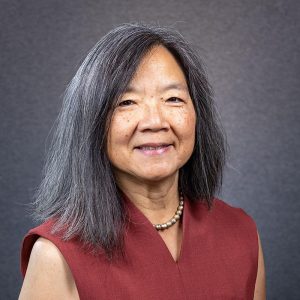
Margaret Chon is the Donald and Lynda Horowitz Professor for the Pursuit of Justice at Seattle University School of Law, where she has been a faculty member since 1996. Her areas of expertise include intellectual property law, civil procedure, and how race interacts with the law. She has authored numerous articles, books, book chapters, and review essays on intellectual property, and race and law. She is an alumna of Cornell University and University of Michigan, where she received her JD, and has clerked for Judges A. Leon Higginbotham and Dolores J. Sloviter of the US Court of Appeals for the Third Circuit. Professor Chon is also a member of the American Law Institute and the American Bar Foundation.
See Margaret’s full profile here.
Daryl Lim
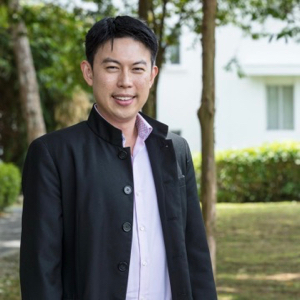
Daryl Lim is the H. Laddie Montague Jr. Chair in Law at Penn State Dickinson Law and co-hire ant the Institute of Computational and Data Sciences at Penn State University. He is also Associate Dean for Research and Innovation, and Founding Director of the Intellectual Property (IP) and Innovative Initiative. He is a founding member of the Global IP Alliance and serves as co-chair of University Education Committee in the US IP Alliance. His areas of expertise include IP and competition policy, and how they are influenced by law, technology, economics, and politics, which his research interests lie in IP law, antitrust law, AI, data security and privacy, and the architecture of innovation. He received his LL.B and LL.M from the National University of Singapore, and JSM from Stanford Law School.
Read Daryl’s full profile here.
Michael Madison

Michael Madison is a Professor of Law and the John E. Murray Faculty Scholar at University of Pittsburgh, where he has been a faculty member since 1998. He is also Senior Scholar with the University of Pittsburgh Institute for Cyber Law, Policy and Security, and Faculty Director of the Future Law Project. He is the co-founder of the emerging research discipline known as “knowledge commons” His areas of expertise and interests are institutions and governance, intellectual property, science, technology and innovation, education, and culture. He is the co-host and producer of the Future Law Podcast. Prior to becoming a professor, Professor Madison practiced law in San Francisco and Silicon Valley. He received his BA from Yale University, and his JD from Stanford University.
Read Michael’s full profile here.
Metka Potocnik
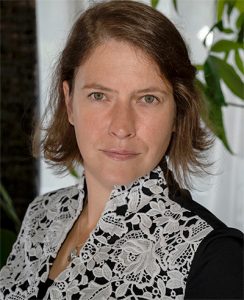
Dr. Metka Potocnik is a Senior Lecturer in Law and Co-Head of the Law Research Centre at University of Wolverhamptom Law School in the United Kingdom. She is also Editor-in-Chief of the Wolverhamptom Law Journal. Dr. Potocnik specializes in a feminist critique in intellectual property law, and has expertise in international arbitration, foreign direct investment, EU law and commercial law. She i s a Member of the Arts and Humanities Research Council (AHRC) Peer Review College, a Director of the F-List for Music CIC and the Assistant Director (International Programmes) at the Institute of Intellectual Property and Social Justice (IIPSJ). She received her LL.B from University of Lujubljana, LL.M from Kings College London, and PhD from Queen Mary University London. She was called to the Slovenia Bar in 2008, and practiced commercial law prior to her academic career.
Read Metka’s full profile here.
Erik Stallman

Erik Stallman is an Assistant Clinical Professor of Law at University of California, Berkeley School of Law. He is the Associate Director of the Samuelson Law, Technology & Public Policy Clinic, and Faculty Co-Director of the Berkeley Center for Law & Technology. His areas of expertise are civil rights, intellectual property, and privacy and cybersecurity, while his primary interests lie in regulation of access to information and open internet issues. He has worked on IP and telecommunications law and policy in Congress, the FCC, NGOs and in private practice. He has served as counsel at Google, to then-speaker Nancy Pelosi, and Congresswoman Zoe Lofgren. He received his JD from Berkeley Law and clerked for Judge Susan P. Graber of the US Court of Appeals for the Ninth Circuit.
Read Erik’s full profile here.

